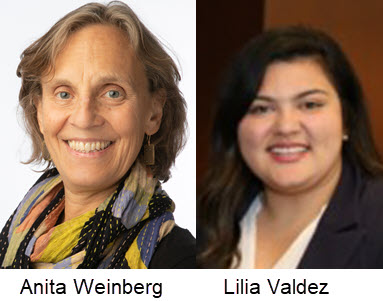Become a Patreon!
Abstract
Excerpted From: Anita Weinberg and Lilia Valdez, Child Welfare, Reasonable Efforts, and Covid, 41 Children's Legal Rights Journal 162 (2021) (62 Footnotes) (Full Document)
 Article 19 of the United Nations Convention on the Rights of the Child (CRC) requires governments to protect children from all forms of violence, including violence in the home. At the same time, Articles 3 and 5 obligate states to respect the rights and duties of parents to care for and make decisions on behalf of their children.
Article 19 of the United Nations Convention on the Rights of the Child (CRC) requires governments to protect children from all forms of violence, including violence in the home. At the same time, Articles 3 and 5 obligate states to respect the rights and duties of parents to care for and make decisions on behalf of their children.
Although the United States is not a signatory to the CRC, federal law also seeks to strike a balance between protecting children from harm by family members and recognizing the constitutional rights of parents to direct the care, control, and upbringing of their children. Before a child may be removed from a parent based on allegations of abuse or neglect, the state child welfare agency must make “reasonable efforts” to prevent or eliminate the need for removal of the child from his home; and if removed, “reasonable efforts” must be made to return the child home. Neither federal law nor regulations, however, define reasonable efforts, leaving states to interpret the meaning of the phrase. Usually, reasonable efforts are understood to include referral to and/or the provision of accessible and available resources, such as individual, group, and family counseling; mental health treatment; parenting classes; and homemaker services. Federal law also establishes time frames within which decisions regarding permanency for children, including termination of parent rights, must be made.
The COVID-19 pandemic, however, has impacted children and families across the country, and child welfare agencies have struggled to make reasonable efforts under unprecedented conditions. Without strong reasonable efforts, families may not be provided adequate services to address the reasons for their child's removal, children may remain in long-term foster care, or parental rights may be terminated as a result of federal timelines.
This article will briefly examine the ways in which the pandemic has disproportionately affected people of color, who are already disproportionately impacted by the child welfare system. It then will describe the challenges facing children and families in Illinois' child welfare system during the pandemic and its potentially devastating impact on them. The article will also discuss the responses of both the federal government and state courts to these challenges, and conclude with recommendations put forth by Illinois-based advocates seeking to address these challenges and defend the human rights of children.
[. . .]
The pandemic's impact will be felt for years to come, including in the child welfare realm. The monumental decisions that agencies and courts make during this time, including whether to return a child home or to terminate parental rights, will have lasting effects on children and families. These decisions will be made despite the fact that parents may not have received adequate services, quality contact with their children, or timely hearings in court. Agencies may point to a child's “best interests,” or a child's “sense of time,” as reasons for proceeding despite the lack of reasonable efforts made. Federal and state laws, however, allow for deliberative decision-making that takes into account individual circumstances. Before decisions regarding permanency for a child are made, agencies and courts must ensure that critical--and effective--services and supports have been made available to parents and their children. Courts must also ensure that parents have the opportunity to be heard in court and to advocate for contact with their children and for adequate and necessary resources and services. The pandemic does not lessen the agency's responsibility to make reasonable efforts; granted it does make it more difficult.
Anita Weinberg is the Curt and Linda Rodin Clinical Professor of Law and Social Justice at Loyola University Chicago School of Law, and Director of the ChildLaw Policy Institute in the Civitas ChildLaw Center and of the Rodin Center for Social Justice.
Lilia Valdez is a 2021 J.D. candidate at Loyola University Chicago School of Law and a Research Assistant in the Civitas ChildLaw Center.
Become a Patreon!


